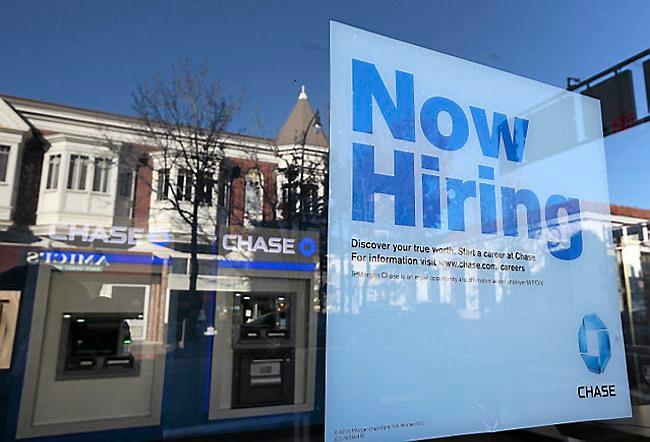
Lynn Schmidt: How could Dems win back workers? Start with respecting the value of work
If the Democratic Party wants to win future elections outside of deep blue areas, they might just need to take inspiration from Goodwill Industries and embrace their philosophy of “A hand up, not a handout.”
In the election analysis business, there is a tendency to attribute President-elect Donald Trump’s win to one or two major factors, like the economy or immigration. And as time goes on, political scientists like me may learn more, but one takeaway that is not really being discussed as an electoral factor is the role of work, aspiration and prosperity.
Warning: There will be painting with a very broad brush here. Please proceed with the understanding that there are people in our society that require services, and this is by no means a suggestion that they not receive the assistance that they need.
Republican pollster and author of “Party of the People: Inside the Multiracial Populist Coalition Remaking the GOP” Patrick Ruffini recently joined New York Times columnist Ezra Klein on Klein’s podcast on an episode titled “The Book That Predicted the 2024 Election.”
Ruffini shared polling that he conducted with Hispanic voters living in the Rio Grande Valley, Texas. He asked them what is the number-one problem that you see today with the Democratic Party. Ruffini told Klein that the answer they gave “wasn’t too woke or the buzzword of socialism.” Rather, they perceived the Democratic party as being “the party of welfare benefits for people who do not work.”
“And if you look at how the Democratic Party has been perceived in the last four years, in particular in terms of letting immigrants into the country, illegal migrants into the country, and there’s a perception that they’re getting government benefits and not working,” said Ruffini. “And all of this is coming at the expense of people who made their way in America who started from the very bottom of the rung and worked their way up the economic ladder through their own hard work or and not necessarily through government policies.”
This advice, if heeded, could have helped Vice President Kamala Harris in her campaign. Harris’ economic policy agenda focused on “Lower costs for middle-class families” and to “Build an Opportunity Economy to Help Americans Get Ahead and Build Wealth.” Her campaign website cited her “opportunity economy” consisting of cutting taxes for working families, going after businesses and corporations for price gouging, lowering health care costs, expanding the child tax credit, and offering $25,000 for new home buyers.
While Harris’ plan may have put more money in working Americans’ pockets, the focus seemed to be about the government’s role in helping citizens, rather than empowering them to achieve their own success.
Consider it in light of Chinese philosopher Lao Tzu’s famous quote, “Give a man a fish and you feed him for a day. Teach him how to fish and you feed him for a lifetime.” A Harris administration would have doled out a lot of fish.
Speaking of encouraging achievement, back in May, Trump held a large rally in the South Bronx, New York, one of the most Democratic counties in the nation, where he tried to reach out to Black and Hispanic voters. While Trump’s speech was littered with lies about the 2020 election and other ramblings, he spent a large portion of that rally talking about success, both for the country and for individual Americans.
“Do you remember I used to give talks on success before politics?,” Trump told the crowd. “… It starts with getting the right leadership. It also involves men and women just like you. But I talk a lot about success, and I get paid money to talk about success. I would’ve done it for nothing. But then because of politics, and if you take a look, because of politics, I stopped doing that. But I think we’re in the Bronx, we have young people, people that aspire to success.”
As we sift through the data of the election, it appears as if Trump was able to reach at least some of those voters. For example, he increased his vote share in the Bronx by 11 points, from 16% in 2020 to nearly 30% on Nov. 5.
Trump won the 2024 election by turning out his base of supporters, but he also expanded his coalition among other voters, including several groups that have traditionally been a part of the Democratic base.
VoteCast conducted a sweeping survey of the American electorate, interviewing more than 120,000 voters nationwide from Oct. 28 to Nov. 5. Their results found that Trump picked up a small but significant share of Black and Hispanic voters and made narrow gains with men and women. Harris lost support from this portion of the electorate as compared to President Joe Biden’s coalition in 2020.
Talking about success seems to have bred electoral success, at least when it came to the former and future president.
For years now Democrats have been wringing their hands over the loss of the working-class voter to Republicans. Instead of trying to “help” workers with aid and programs, Dems should acknowledge, praise and encourage Americans’ labor.
Lynn Schmidt is a columnist and Editorial Board member of the St. Louis Post-Dispatch.
Related Articles
Maureen Dowd: My brother is doing the Trump Dance
Tyler Cowen: Don’t take away Americans’ freedom to charge it
Catherine Thorbecke: China’s dystopian tech influence grows in Vietnam
Cory Franklin: Robert F. Kennedy Jr. is prone to exaggeration, but his strength is identifying critical health problems
Sarah Green Carmichael: While you do 5-day RTO I’ll watch your best workers quit


